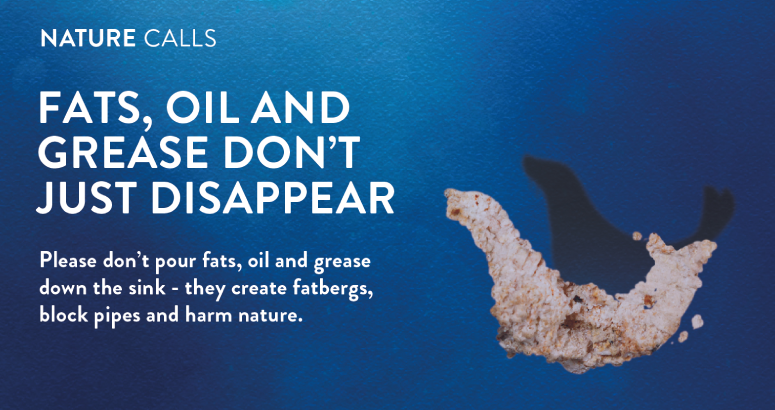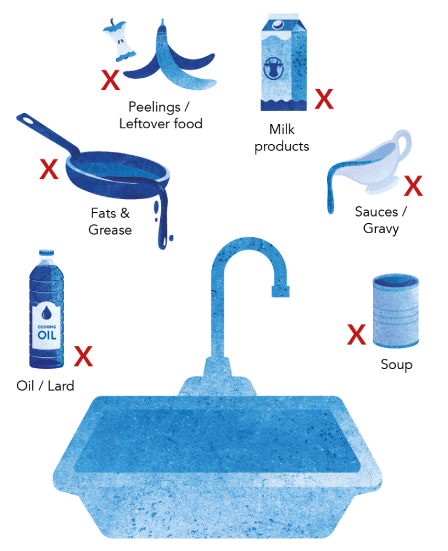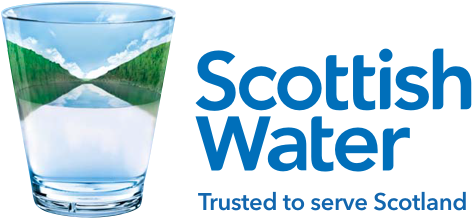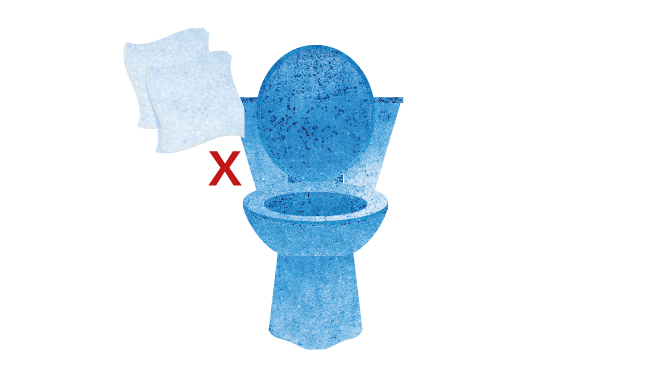Kitchen Checklist
Oil Doesn’t Make Everything Run Smoothly

Did you know?
The waste water drain which runs from your home to the public sewer is usually about 10 cm across, which is less than the diameter of a DVD.
Re-use or bin leftover fats, oil and grease
It may seem like fats, oil and grease (FOG) go down the kitchen drain with ease. But as they cool, they begin to thicken.
And when fats combine with other materials in the sewer system, they create blockages and nasty fatbergs. FOG can make blockages, leading to flooding of your home or your neighbours.
The best way to dispose of leftover fat. If you can’t reuse it, allow it to cool, then scrape it into your food waste recycling or put it in the bin. Please remember to check your local council’s website and follow their advice when it comes to recycling FOG.
Your Kitchen Checklist:
- Fats, oil and grease – if you can’t reuse it, leave to cool /harden and then scrape into your food waste recycling or put it in the bin
- Peelings - put any waste food and peelings into your food waste recycling or put them in the bin
- Give plates, pans, utensils and containers a scrape or wipe with some kitchen towel before washing and use a sink strainer in the plughole to catch any bits of leftover food going down the sink
- Believe it or not soup, stocks sauces and milk products all contain fat, which can also congeal and harden in your drains - leave these to cool/harden, then scrape into your food waste recycling or put them in the bin
- Please check with your local Council/waste contractor for info on how to dispose of used fats, oil and grease and food recycling in your area.








